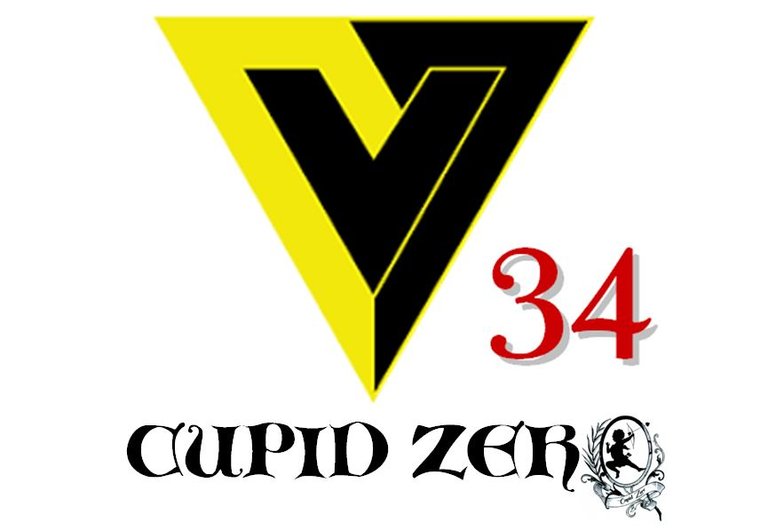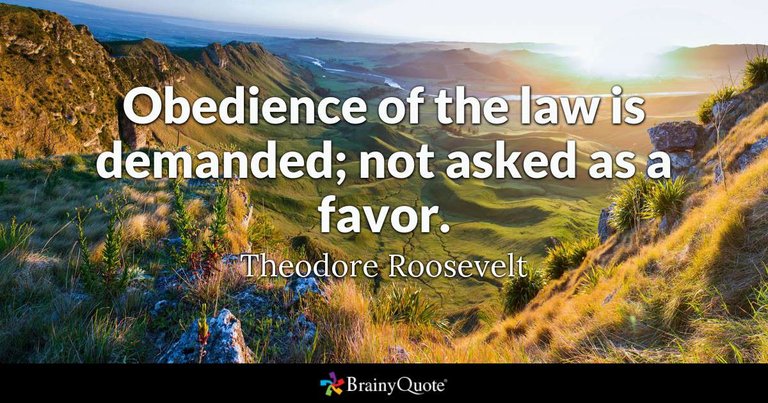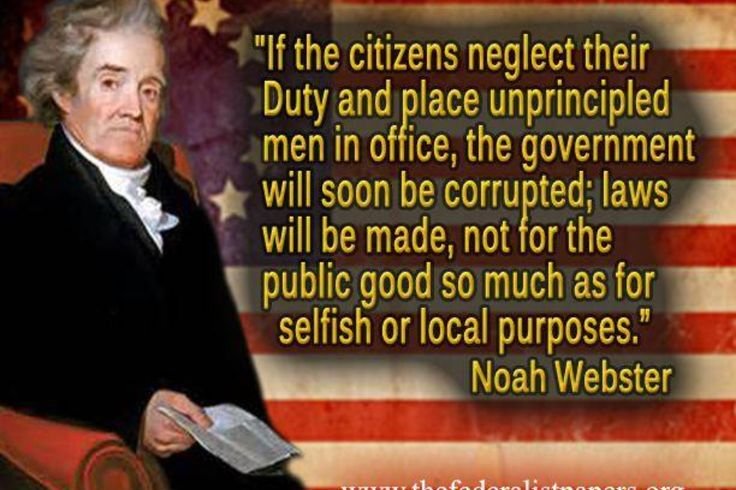3.11.6. Final Thoughts on Citizen's Arrest
Towards Voluntaryism (Part 34)
Final Thoughts on Citizen's Arrest
The effective and successful use of citizen's arrest (or detention) to hold public servants accountable for their transgressions depends entirely upon knowledge of the law and the willingness to see it enforced. Searching the internet, it is difficult and rare to find examples of citizen's arrests successfully executed. Worse yet, the number of pages and comments mocking, denigrating and belittling people who try to do the right thing far outweighs any practical or useful information.
The most common "advice" about citizen's arrest is _ nor to even try_. Given that the only people who actually benefit from the populace being discouraged from exercising their right to perform a citizen's arrest are criminals, it is difficult to come to terms with. Yes, you have to know what you are doing and be ready to back it up with the laws on the books or there may be consequences to bear, but if you have all your ducks in a row, you can make a real difference.
"The predator wants your silence. It feeds their power, entitlement, and they want it to feed your shame." - Viola Davis
The rule of law in many instances appears to have replaced by the arbitrary enforcement of a legal system that has criminalized, regulated or restricted almost everything. Those public servants who violate the strictures are targeted only if they are operating counter to the will of the selfish predatory elements that have occupied practically all key positions of power, be it themselves or by proxy.
Executing a citizen's arrest against corrupt and criminal public servants and forcing accountability may be the only recourse to restore order and justice. Even if such movements as that represented by Qanon are genuine, the rot is so deep at this point, that the public must be involved in restoring the rule of the law. What can be done however when public servants refuse to hold other public servants accountable? Are there any legal consequences for public servants neglecting to perform their duty or performing their duty in an abusive or negligent manner?
Abuse of Public Office, Neglect of Duty, Negligence, Obstruction
As functionaries of government, public servants are themselves governed in their actions by the law. Their actions are mandated actions, not volitional. Public servants do not, as a function of their office, have the ability to arbitrarily "change the rules" or choose not to follow the law. Failure to perform their duties are thus transgressions of the law and in many instances a punishable offense. In almost every jurisdiction there are laws governing neglect of duty and the abuse of public office. Research the specifics for your jurisdiction at [https://law.justia.com].
Abuse of Public Office
"A public servant commits the crime of misuse of confidential information if in contemplation of official action by himself or by a governmental unit with which he is associated, or in reliance on information to which he has access in his official capacity and which has not been made public, he:
- Acquires a pecuniary interest in any property, transaction or enterprise which may be affected by such information or official action;
- Speculates or wagers on the basis of such information or action; or
- Aids another to do any of the above.
Related to the concept of abuse of office is failure to disclose a conflict of interest. A public servant commits the crime of failing to disclose a conflict of interest if he exercises any substantial discretionary function in connection with a government contract, purchase, payment or other pecuniary transaction without advance public disclosure of a known potential conflicting interest in the transaction. Accepting a pecuniary benefit in return for a promise of an appointment to a public office or public employment or designation or nomination as a candidate for public office is another related offense which may be subject to prosecution under state or federal laws."
Neglect of Duty
"Neglect of duty is the omission to perform a duty. Neglect of duty has reference to the neglect or failure on the part of a public officer to do and perform some duty or duties laid on him as such by virtue of his office or which is required of him by law. It is not material whether the neglect is willful, through malice, ignorance or oversight, when such neglect is grave and the frequency of it is such as to endanger or threaten the public welfare, it is gross. [State ex rel. Hardie v. Coleman, 115 Fla. 119 (Fla. 1934)]."
Negligence
"Every person is responsible for injury to the person or property of another, caused by his or her negligence. Negligence is the failure to use reasonable care. Negligence may consist of action or inaction. A person is negligent if he fails to act as an ordinarily prudent person would act under the circumstances. What constitutes negligence will depend on the facts of each individual case. Generally, a trier of fact needs to determine what a "reasonable" person would do or not do in the given situation.
In some instances, negligence is defined by statute, referred to as negligence per se. In such cases, negligence is determined by failure to comply with the statutory requirements. Negligence per se may also be declared when a person does or omits to do something which is so beyond reasonable behavior standards that it is negligent on its face.
Some acts are considered inherently negligent, with no requirement to prove the negligence was known or intended. For instance, when a doctor leaves a sponge inside a patient, it is inherently negligent. In appropriate cases, affirmative defenses such as contributory negligence, etc., may also be raised by a defendant.
After determining whether or not negligence exists, a trier of fact may decide whether there were any applicable defenses to negligence, such as assumption of the risk, etc.
Courts often construe general indemnity provisions as granting protection to people only from damages caused by their "passive negligence." Passive negligence is usually defined as mere failure to act, such as failing to discover a dangerous condition or to perform a duty imposed by law. "Active negligence," however, occurs when someone has personally participated in an affirmative act of negligence, known about or complied in negligent acts, or failed to perform a precise duty which he/she agreed to perform."
See also Active Negligence, Culpable Negligence
Obstruction of Justice
"Obstruction of justice is an attempt to interfere with the administration of the courts, the judicial system or law enforcement officers. It may include tampering with or intimidating, hiding evidence or interfering with an arrest. It is something a person does to impede the administration of a court process or proper discharge of a legal duty. Interference may be with the work of police, investigators, regulatory agencies, prosecutors, or other (usually government) officials. Often, no actual investigation or substantiated suspicion of a specific incident need exist to support a charge of obstruction of justice. Such activity is a crime."
See also: Obstruction of Governmental Operation, Obstruction of Public Administration of Government
Low Hanging Fruit
It seems almost needless to say, but the four examples above (Abuse of Public Office, Neglect of Duty, Negligence, Obstruction) can be seen being engaged in by public servants almost daily in the news feeds. Be it by public servants actively opposing immigration laws by neglecting to enforce them or by the failure of law enforcement to arrest the public servants doing so, the state of affairs has become laughable for its degree of blatant corruption, arbitrariness, lawlessness and incompetence.
A summary perusal of state statutes from my home state demonstrate there are more than enough laws on the books to reform government by removing those from office who are operating in bad faith in the execution of their office. If law enforcement is not willing to perform its duty, it essentially forces the private citizen to do it for them or to suffer a lawless state of affairs that can be widely observed as extant at this point in time.
It is worth speculating on the effect placing a public servant under citizen's arrest would have on motivating other public servants to perform their duties as mandated. If, in the process of doing so, a law enforcement officer refuses to complete the arrest for a demonstrable crime, committing a neglect of duty, how far up the chain of accountability would a citizen be entitled to go in executing a citizen's arrest?
Almost undoubtedly at this point, the law-abiding citizen would be forcibly silenced and revealed to have no ability to enact or expect justice in a system that has come to embrace the violent subjugation of the coercive state. Perhaps that is what this country needs to finally be shaken awake, to realize that slavery was never truly abolished, just expanded to include everyone. And what peaceful recourse would then be left to the citizen who would be free, who would see limited constitutional government restored? I truly don't know.
"Those who make peaceful revolution impossible will make violent revolution inevitable." - John F. Kennedy
As a final thought, I include the following consideration on common law grand juries. Roger Roots: "If It's Not A Runaway, It's Not A Real Grand Jury writes:
“In addition to its traditional role of screening criminal cases for prosecution, common law grand juries had the power to exclude prosecutors from their presence at any time and to investigate public officials without government influence. These fundamental powers allowed grand juries to serve a vital function of oversight upon the government. The function of a grand jury to ferret out government corruption was the primary purpose of the grand jury system in ages past.”
....
Next [Towards Voluntaryism (Part 35) - Condensed Action Plan

.
.
.
Shot with a golden arrow,

Cupid Zero
.
I consider requests to write on a topic of your choice.
.
Don't forget to upvote, follow and resteem! Comments always appreciated.
.
.
.
.
.
.
.
.
.
.
.
.
.
If you aren't on Steemit, please consider supporting my work with a gift of:
Bitcoin: 1fruAGn9JcKqJJscreUpS2XurfLzksBe8
Litecoin: LQf19ExcdSFDjYj6NktRgzBnJ7NScVgikA
Ethereum: 0xEe3005b1D2D8963a85E1Ca4ff511acCd98A1E29D





With what ive read.
I will volunteer to do things
Curated for #informationwar (by @truthforce)
Relevance: Explaining Citizen Arrest Powers